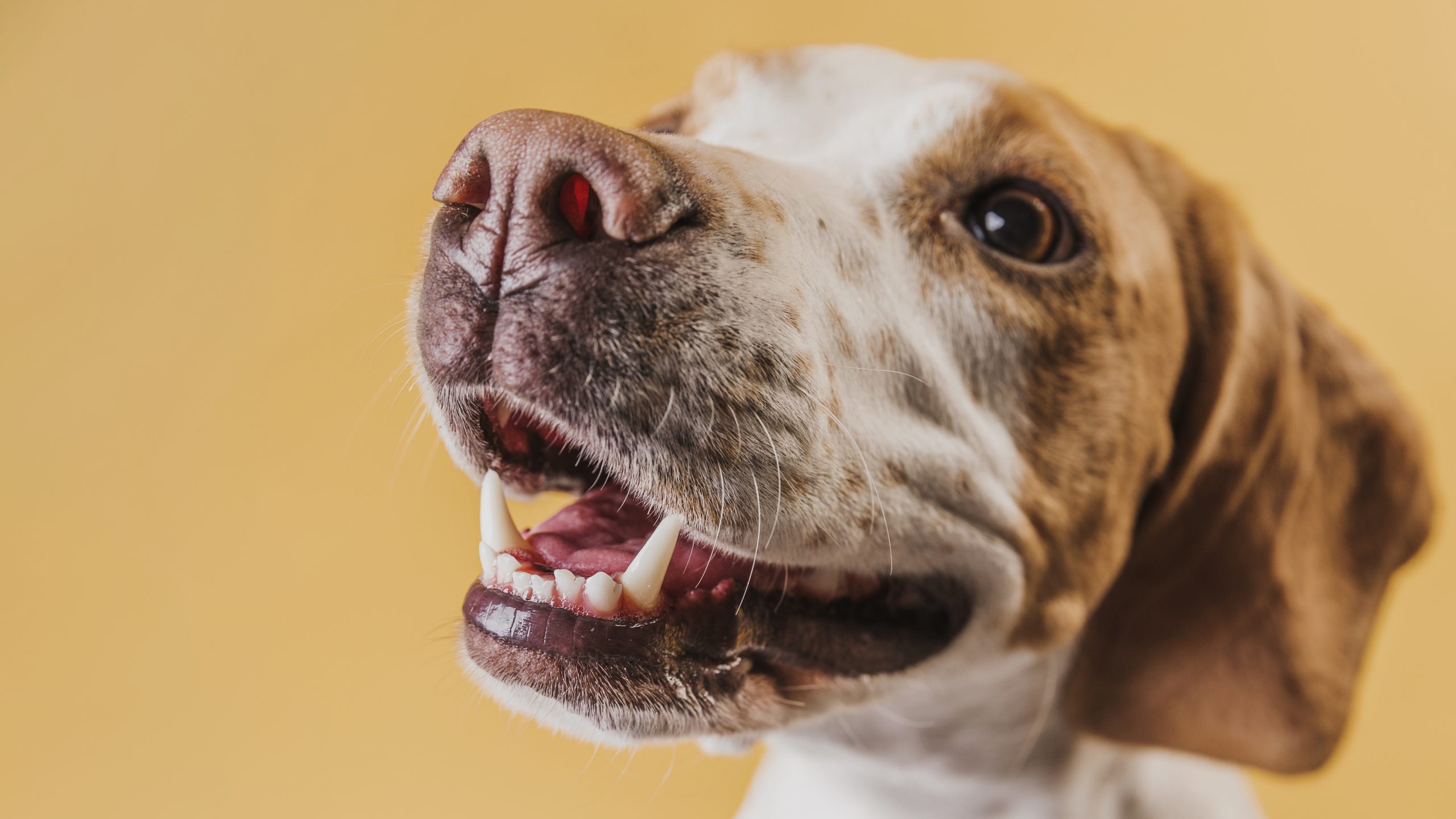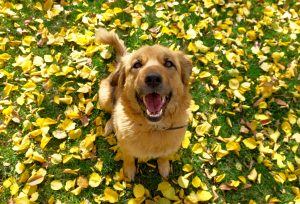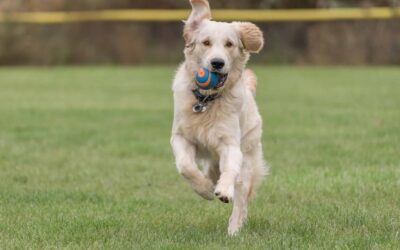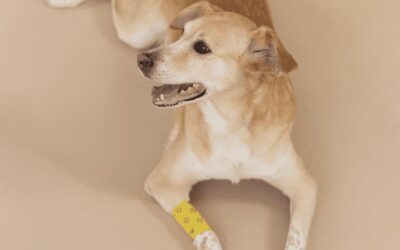Why Does My Dog Chatter His Teeth After Licking?

Updated October 13, 2025
Observing your canine companion’s behaviors not only helps you understand their needs better but also allows you to recognize when something unusual is happening that deserves your attention.
Dogs exhibit countless fascinating behaviors throughout their daily routines, but few are as puzzling to pet owners as the peculiar phenomenon of teeth chattering that sometimes occurs immediately after licking various surfaces, objects, or even other animals.
This distinctive behavior can catch dog owners off guard, leaving them wondering whether their furry friend is experiencing discomfort, excitement, or something else entirely.
The combination of licking followed by teeth chattering represents one of those uniquely canine behaviors that demonstrates the complex sensory world our pets inhabit, where taste, smell, and neurological responses intersect in ways that can seem mysterious to human observers.
Understanding why dogs exhibit this behavior requires examining the intricate connections between their sensory systems, neurological responses, and instinctual behaviors that have evolved over thousands of years.
The Good News: Teeth Chattering Is Usually Normal Behavior
The first thing you should understand is that teeth chattering after licking is typically a completely normal canine behavior that doesn’t indicate any serious health problems or distress in most cases.
This response is actually quite common among dogs. It represents a natural neurological reaction to certain sensory experiences that your pet encounters through their highly developed sense of taste and smell.
Dogs possess remarkably sophisticated sensory capabilities that far exceed human abilities in detecting and processing various chemical compounds, and their chattering teeth often indicate that they’ve encountered something particularly interesting or stimulating to their sensory systems. This behavior is generally harmless and temporary, lasting only a few seconds to a few minutes after the initial licking episode.
Understanding Your Dog’s Amazing Sensory System
The key to understanding teeth chattering lies in recognizing how differently dogs experience the world compared to humans, particularly when it comes to their extraordinary ability to detect and process chemical information through both taste and smell.
Dogs possess a specialized organ called the vomeronasal organ, also known as Jacobson’s organ, which is located in the roof of their mouth and connects directly to their brain’s limbic system, allowing them to process chemical information in ways that humans cannot fully comprehend.
This remarkable sensory apparatus enables dogs to detect pheromones, hormones, and other chemical compounds that provide detailed information about different animals, environmental conditions, and even emotional states.
When your dog licks something and then chatters their teeth, they’re often processing complex chemical information through this specialized system, which can trigger involuntary muscle responses, including the characteristic teeth chattering behavior.
The vomeronasal organ works in conjunction with your dog’s regular sense of smell and taste, creating a multi-layered sensory experience that can be so intense or novel that it triggers physical responses like teeth chattering, jaw movements, or even brief moments of what appears to be confusion or deep concentration.
Common Triggers That Cause Teeth Chattering
Dogs typically exhibit teeth chattering after licking when they encounter certain types of sensory stimuli that are particularly intense or interesting to their chemical detection systems. One of the most common triggers involves licking areas where other animals have been, especially spots where other dogs or cats have urinated, as these locations contain concentrated pheromones and chemical markers that provide extensive information about the other animal’s identity, health status, reproductive condition, and emotional state.
Another frequent trigger occurs when dogs lick human skin, particularly areas where people have been sweating or where lotions, perfumes, or other scented products have been applied, as these substances can contain complex chemical compounds that stimulate the vomeronasal organ and trigger the chattering response.
Some dogs also exhibit this behavior after licking unusual surfaces, objects, or substances that contain unfamiliar chemical signatures or particularly strong concentrations of interesting compounds.
Weather-related environmental factors can also play a role, with some dogs showing increased teeth chattering responses during certain seasons when pheromone concentrations may be higher due to animal mating cycles, or when atmospheric conditions affect how chemical compounds are distributed and detected in the environment.
Types of Teeth Chattering to Recognize
Not all teeth chattering in dogs is the same, and understanding the different types can help you determine whether your pet’s behavior is normal sensory processing or potentially indicative of other issues that might require attention. The most common type associated with licking involves brief, rapid chattering that occurs immediately after licking and typically lasts only a few seconds to a couple of minutes, often accompanied by a somewhat glazed or intensely focused expression.
This normal sensory-related chattering usually happens sporadically and doesn’t seem to cause any distress or discomfort to the dog, who typically returns to normal behavior once the episode passes. However, teeth chattering can also occur in response to cold temperatures, excitement, anxiety, or, in some cases, dental problems or other health issues that require different approaches to management and care.
Learning to distinguish between usual post-licking chattering and other types helps you respond appropriately to your dog’s needs and recognize when veterinary consultation might be beneficial for addressing underlying health concerns or behavioral issues.
When Teeth Chattering Might Indicate Other Issues
While teeth chattering after licking is usually normal, certain circumstances warrant closer attention and potentially professional evaluation to ensure your dog’s health and well-being. If the chattering becomes extremely frequent, lasts for extended periods, or seems to cause distress or discomfort to your pet, these could be signs that something beyond standard sensory processing is occurring.
Teeth chattering, accompanied by symptoms such as excessive drooling, difficulty eating, pawing at the mouth, or signs of oral discomfort, may indicate dental problems, mouth injuries, or other oral health issues requiring veterinary examination. Similarly, chattering that occurs without any apparent trigger, happens during rest periods, or is accompanied by other behavioral changes might suggest neurological concerns or other health conditions.
Dogs that suddenly begin exhibiting much more frequent or intense chattering behavior than usual, especially if accompanied by changes in appetite, energy levels, or other behaviors, should be evaluated by veterinary professionals to rule out any underlying health issues that might be contributing to the changed behavior patterns.
Environmental Factors That Influence the Response
Various environmental conditions can affect how frequently and intensely dogs exhibit teeth chattering after licking, with factors such as seasonal changes, humidity levels, and the presence of other animals all playing potential roles in triggering these responses. During certain times of the year, particularly spring and fall, when many animals are entering breeding seasons, the concentration of pheromones and other chemical signals in the environment increases significantly, leading to more frequent and intense sensory experiences for dogs.
Household environments can also influence this behavior, as homes with multiple pets, frequent visitors, or various scented products may provide more opportunities for dogs to encounter chemical stimuli that trigger chattering responses. Some dogs may be more sensitive to these environmental factors than others, leading to individual variations in how frequently and intensely they exhibit the behavior.
Understanding your dog’s typical patterns and the environmental factors that seem to trigger more frequent episodes can help you better predict and manage these behaviors while ensuring that your pet’s responses remain within normal ranges.

When to Consult Your Veterinarian
While teeth chattering after licking is typically normal, certain circumstances warrant professional veterinary evaluation to ensure that no underlying health issues are contributing to the behavior or causing additional complications. Contact your veterinarian if your dog’s chattering episodes become significantly more frequent, last for unusually long periods, or seem to cause obvious distress or discomfort.
Any chattering behavior accompanied by other concerning symptoms, such as difficulty eating, excessive drooling, pawing at the mouth, changes in appetite, or alterations in typical behavior patterns, should be evaluated by veterinary professionals to rule out dental problems, neurological issues, or other health conditions that might require treatment.
Additionally, if you’re ever uncertain about whether your dog’s behavior falls within normal ranges or if you have concerns about any changes in your pet’s typical patterns, consulting with your veterinarian can provide valuable peace of mind and ensure that any potential issues are addressed promptly and appropriately.
Common Misconceptions About Dog Teeth Chattering
There are a few common misconceptions surrounding dog teeth chattering that are worth addressing. One misconception is that teeth chattering is always a sign of pain or distress. While this can be the case in some instances, teeth chattering can also be a normal behavior associated with pleasure, excitement, or anticipation.
Another misconception is that teeth chattering is solely related to dental issues. While dental problems can contribute to teeth chattering, it is not the only cause. It is important to consider various factors, such as enjoyment, stimulation of salivary glands, anxiety, or excitement, when assessing the cause of your dog’s teeth chattering.
How Can Pet Insurance Help In This Situation?
Pet insurance can provide peace of mind and financial support in situations where your dog’s chattering teeth require veterinary attention. By having pet insurance, you can ensure that your furry companion receives the necessary medical care without incurring exorbitant expenses. It is always beneficial to explore different pet insurance options and choose a plan that suits your dog’s specific needs.
Reimbursement
This method is the most common for pet insurance companies. You pay out of pocket for the veterinarian bill, and then the insurance company reimburses you for what’s covered under the insurance plan. The steps look like this.
- You pay the vet bill after your dog’s visit.
- You fill out the pet insurance claim form.
- Submit the claim form and other required documentation to the insurer.
- After the claim is approved, you will be reimbursed for eligible expenses.
Odie’s Illness and Injury pet health insurance plan offers comprehensive coverage for your dog.
What Does Odie Pet Insurance Cover?
Pet insurance covers various veterinary expenses, providing financial protection and peace of mind for pet owners. Here are the details of the coverage options offered by Odie Pet Insurance:
Illness & Injury Plan
The Illness & Injury Plan is an all-inclusive insurance plan designed to cover a wide range of medical needs for your pet. This plan includes comprehensive coverage for various illnesses, injuries, and veterinary services. Some of the covered items include:
- Veterinary exams and consultations
- Diagnostics (e.g., X-rays, lab tests)
- Prescribed medications
- Surgeries and hospitalization
- Rehabilitation, acupuncture, or chiropractic treatments
- Medically necessary supplies
The Wellness Plan
The Wellness Plan is a monthly membership that focuses on preventive care and covers routine veterinary services.
- Provides reimbursements for routine care items, such as wellness visits (exams and vaccines), testing and parasite prevention, dental cleanings and at-home dental care, vitamins, supplements, and more.
- Through Odie’s partnership with Petivity, a leader in smart pet products and proactive care, Wellness Plan members can also receive reimbursements for Petivity devices and health kits, as well as eligible Purina food and supplements.
- Total reimbursement up to $700 per year.
FAQs
Why does my dog chatter teeth after licking, and is it normal?
Yes, it’s typically a neurological response to sensory stimulation—called the Flehmen response. Dogs “breathe in” pheromones and chemical information through their vomeronasal organ (Jacobson’s organ) located in the roof of the mouth. This specialized organ detects pheromones, causing involuntary jaw movements/chattering. Lasts a few seconds to minutes and is harmless. Dogs have sophisticated sensory capabilities far exceeding humans.
What triggers teeth chattering after licking?
Common triggers include licking areas where other animals have been (especially urine spots with concentrated pheromones), licking themselves (particularly genital areas), smelling/licking strong or novel scents, and male dogs smelling female dogs (or vice versa). Additionally, processing complex chemical information can also trigger these behaviors. It’s normal for dogs to chatter after licking another dog’s urine—disgusting to us, but urine contains extensive chemical markers about other dogs.
When should I be concerned about teeth chattering?
Teeth chattering is considered concerning if accompanied by bad breath, excessive drooling, bleeding from the mouth, difficulty eating/chewing, avoiding food, mouth/face swelling, pawing at the mouth, lip licking with nausea signs, happens randomly without triggers, occurs persistently/continuously, shows pain indicators, or unusual distress. Dental issues (broken teeth, abscesses, gum disease, oral growths) and nausea/GI reflux are common medical causes requiring vet attention.
Can anxiety, excitement, or cold cause teeth chattering?
Yes!
- Anxiety/stress: Fear, nervousness at the vet, meeting new dogs (social anxiety), stressful situations. Body language: lowered tail, pinned ears, panting, trembling, hunched posture. Greyhounds commonly chatter from nervousness.
- Excitement: Anticipating food/treats/toys when you arrive home.
- Cold: Just like humans, jaw muscles contract/relax to generate heat. Small dogs (Chihuahuas) feel cold effects sooner; provide sweaters/warm spots.
What other medical conditions cause teeth chattering?
- Focal seizures: Jaw movements limited to chattering; dogs may stare, act lethargic, won’t respond during episode.
- White Shaker Dog Syndrome: Uncommon neurological condition in small, usually white dogs causing full-body tremors including teeth chattering.
- Pain from dental issues, jaw problems, injuries, or internal discomfort can manifest in several ways: hunched posture, hiding, aggression when touched, and changes in appetite.
How is teeth chattering diagnosed and treated?
Vet performs oral exam, medical history, health assessment, observes behavior context, and may recommend blood work, X-rays, CT scans, or endoscopy.
Treatment depends on the cause: dental cleaning/extractions for dental disease, antibiotics for infections, anti-anxiety medications or training for stress, pain management, anti-nausea medications for gastrointestinal issues, anticonvulsants for seizures, or monitoring for a normal Flehmen response. See a vet if symptoms are persistent, random, accompanied by other symptoms, or causing distress. Normal sensory chattering needs no treatment—it’s natural behavior.



